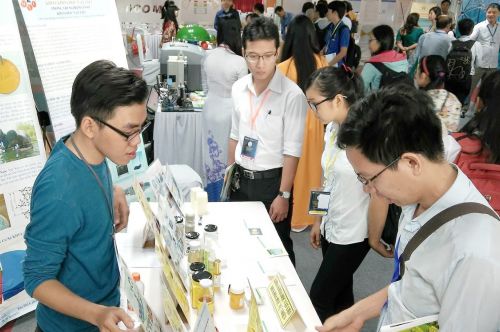Australia, Vietnam develop new sugarcane technology
Sugarcane industry needs to slash costs
The project will evaluate varieties of sugarcane that are better adapted to the soil and climate of the two nations, taking into consideration the issues of productivity, pest resistance and tolerance to cold and drought.
“The greatest benefit of the project is the opportunity for both countries to develop a greater range of cane varieties,” said Sugar Research Australia Executive Manager of Development Peter Allsopp.
Additionally, Allsopp said the project aims to develop and recommend a production system model based on studies of fertilization and planting periods, among other regional factors.
“However our primary focus is on developing a broader diversity of plants for propagation that can withstand a wider array of pest and disease organisms”, said Allsopp.
That’s what this agreement with Vietnam is all about Allsopp underscored— it’s about increasing the diversity of materials we can use as parents.
"We can make crosses and then we can select the best of those seedlings that we get in our trials and hopefully develop better varieties of cane for the Vietnam and Australian sugar industry."
Mr Allsopp said in the past, foreign cane varieties rarely succeeded in the harsh Australian conditions, adding that currently only about half the sugar varieties in Australia have one parent from a foreign exchange.
Initially, researchers in each country provided the other with a list of ten cane varieties to be exchanged.
The agencies will also work cooperatively on research into sugarcane diseases and pests ‘of mutual interest’ and other ventures such as trait development, molecular biology, and crop management.
Sugar Research Institute Australia currently has variety exchange agreements with 15 countries.
Director General Nguyen Duc Quang of the Sugar Research Institute of Vietnam is hopeful the agreement will benefit both countries.
Quang said Vietnam’s sugarcane industry had some diseases and pests which were of bio-security concern to Australia, even some that had not yet appeared in Australia.
"Working together, we can help lessen their impact on the Vietnamese industry, as well as ensure that the Australian industry is well prepared for any incursion."
Australia is the globe’s third largest exporter of sugarcane, while Vietnam is less competitive lagging far behind countries such as Thailand, Indonesia and the Philippines in production.
The agreement is widely accepted as being a tremendous boon to Vietnam, especially in light of the noodle bowl of free trade agreements the nation is engaged in and the need to boost the competitiveness of its agriculture industry.


